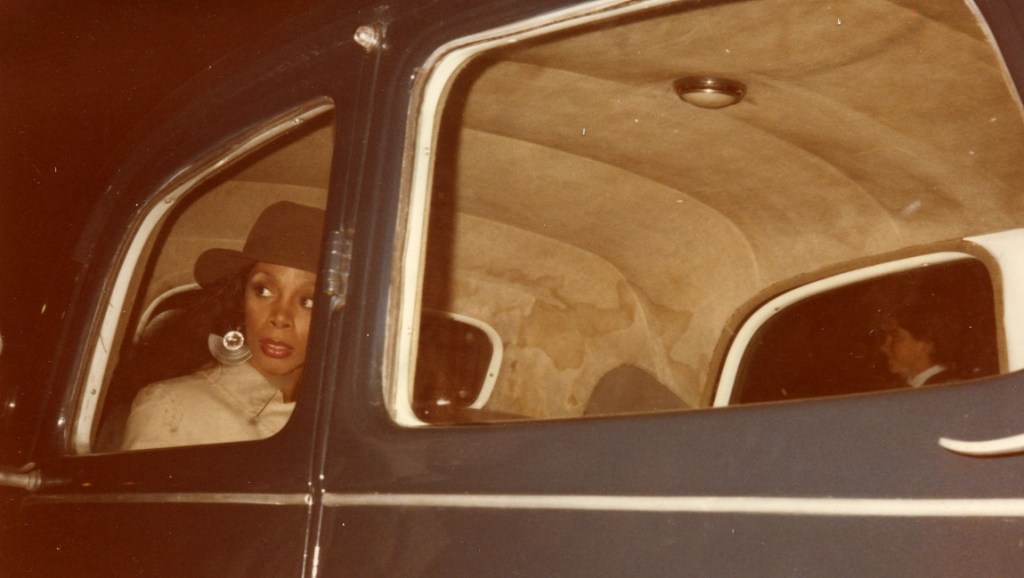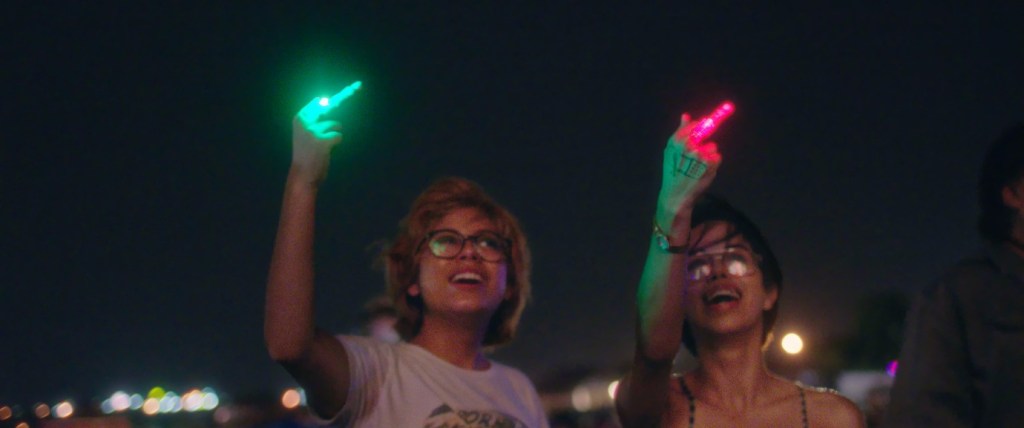
I saw three documentaries and three narrative features at the 20th(!) Independent Film Festival Boston; here are reviews of the former; check back here in one week for the latter.
LOVE TO LOVE YOU, DONNA SUMMER
She’s rightly remembered as “The Queen of Disco” but even that royal moniker only hints at Donna Summer’s talent and star-power. Blessed with a stellar voice and physical beauty to match, one could assume her success as a singer was also a case of “right time, right place”, adapting to and then defining a dominant musical genre of her era. This documentary, co-directed by her daughter Brooklyn Sudano celebrates Summer but also works diligently to present her as the multifaceted person she was. Most recall her as the woman who orgiastically moaned “Love to Love You Baby” and belted “Last Dance”, but she was also an innovative artist whose contributions to her hit singles and elaborate concept albums far exceeded that primary impression—cue the footage of her vocally coming up with the mechanical electronic rhythm that would define her seminal synth-pop opus “I Feel Love” or the many transformative live performances which she often approached with the meticulousness of a serious actor.
Constructing the film with an extensive assortment of archival footage (both visual and aural), first-time filmmaker Sudano runs the risk of incoherence; at times, the final product does feel a little scattered, stuffing so much content into a feature-length frame. I suspect her co-director, Roger Ross Williams (an Academy Award winner for Life, Animated) provides crucial support in shaping it into a mostly satisfying trajectory. One of their most distinct and effective decisions is to relegate all modern-day interviews to audio only (similar to the recent docuseries 1971: The Year that Music Changed Everything) which keeps the focus laser-sharp on Summer and also preserves the audience firmly in her own time frame (she passed away from lung cancer in 2012.) The only real glimpses of the present are shots of Sudano sifting through all of her mother’s artifacts—less an indulgence than a loose framing device expressing her personal connection to the material.
In the Q&A after this screening, Sudano mentioned that she didn’t want to make a puff piece or a Behind The Music-style overview; the film certainly doesn’t shy away from darker moments of Summer’s life, nor does it gloss over such controversies as her becoming a born-again Christian at the dawn of the 1980s. Also addressed is the backlash she received from the gay community over homophobic song lyrics that spiraled into rumors distressing not only her fanbase but also herself. But that self was alternately (and often simultaneously) a glitzy, commandeering diva, a campy goofball, a devoted but visibly exhausted mother, an introspective wanderer. Similarly, this ambitious, near-exhaustive portrait is a love letter, a critical assessment, a fanciful but also far-reaching collage. Like its subject, it leaves a mark. (Premieres on HBO May 20.)

HUMMINGBIRDS
Best friends Silva and Estefania (nicknamed “Beba”) are two teenagers in Laredo, Texas. They engage in typical activities for their age: hanging out at the convenience store parking lot, sneaking past the gates of vacant or abandoned homes, sitting at the Rio Grande peering across the border to Mexico. Beba, an aspiring musician, is an illegal immigrant, so the view is bittersweet; if she and Silva were to cross the border it would jeopardize her attempts at getting her work papers. The girls’ pro-abortion activism is also poignant once their personal experience regarding it comes into view.
Co-directed by its subjects, Hummingbirds is purposely casual—lackadaisical, even. Sections of it nearly resemble a video diary, yet the subjects rarely break the fourth wall so it’s closer to cinema verité, albeit a self-reflexive take on that non-narrative subgenre. It took me some time to process how substantial this approach actually was (I wasn’t surprised at this screening when two boomers sitting in front of me walked out early on), but I think I get it—anyone can turn a camera on themselves (now more than ever) and call it “art”, but this approach allows one to observe and absorb specifics of community, camaraderie and causes where the personal and political are deeply linked without getting spoon-fed their implications. With considerable candor and charm (and some open-endedness), Silva and Beba could make a sequel in a few years, potentially turning this into their own take on Michael Apted’s Up series if they so desire.
THE ORDER OF THINGS
Watch repair requires a steady hand and infinitesimal patience; this documentary exudes the latter in spades and also requires it from the viewer. Alexandru, a 90-year-old Romanian clock maker, recalls his time as a political prisoner in forced labor camps of that country’s Soviet and Communist regimes. Scenes of him speaking openly about his harrowing past alternate with nearly meditative footage of him at work, a survivor whose old age is positively bucolic compared to what came before. This mostly plays out in lengthy still shots meant to emphasize a sense of place and the value of time being deeply considered rather than glossed over. It’s a beautiful, admirable documentary, but also a challenging one that I had difficulty fully connecting with. It aims for a sense of the sublime but sometimes (such as when it aspires to Jeanne Dielman-like rigidity), it comes off as pretentious.